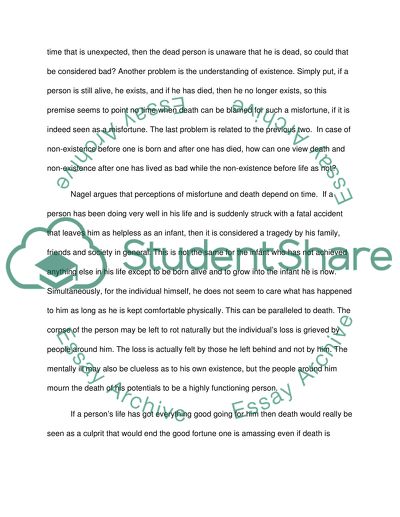The discussion of Nagel Thomases Death Essay Example | Topics and Well Written Essays - 750 words. Retrieved from https://studentshare.org/philosophy/1467351-the-discussion-of-nagel-thomases-death
The Discussion of Nagel Thomases Death Essay Example | Topics and Well Written Essays - 750 Words. https://studentshare.org/philosophy/1467351-the-discussion-of-nagel-thomases-death.


